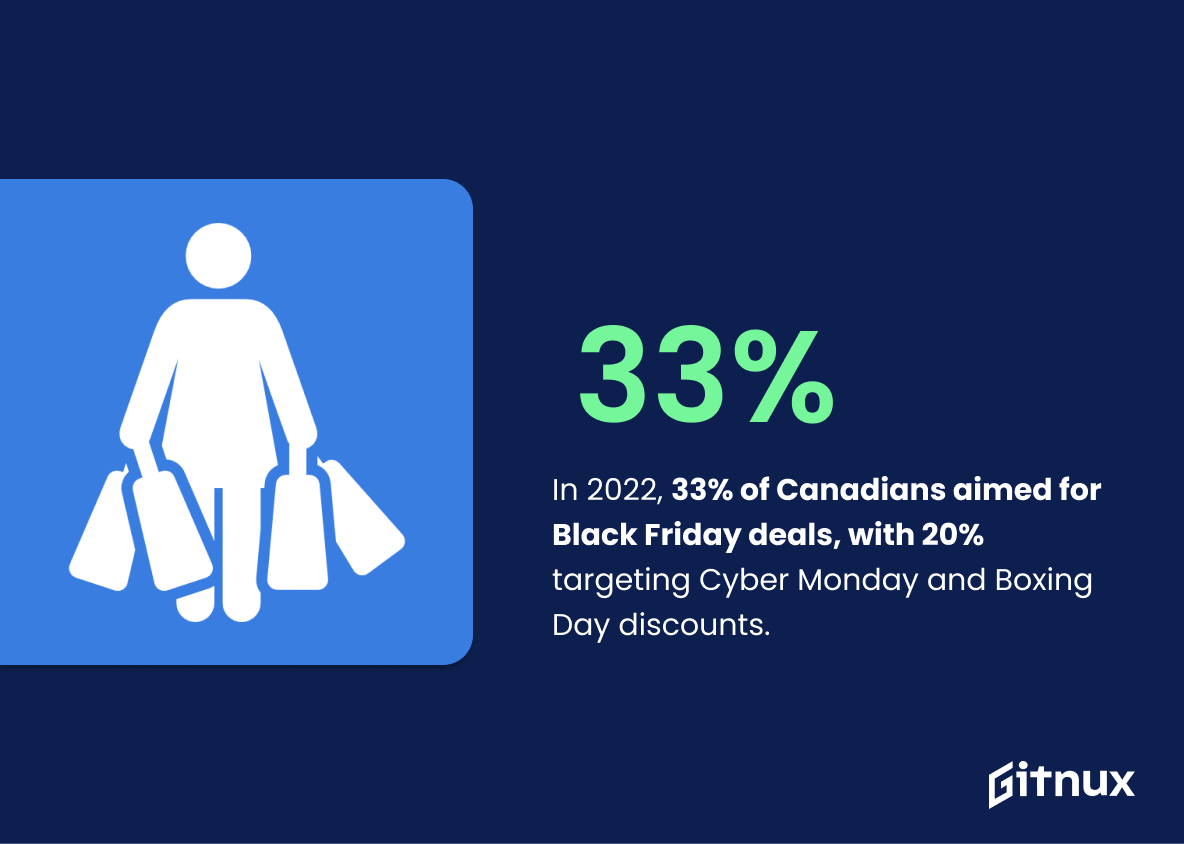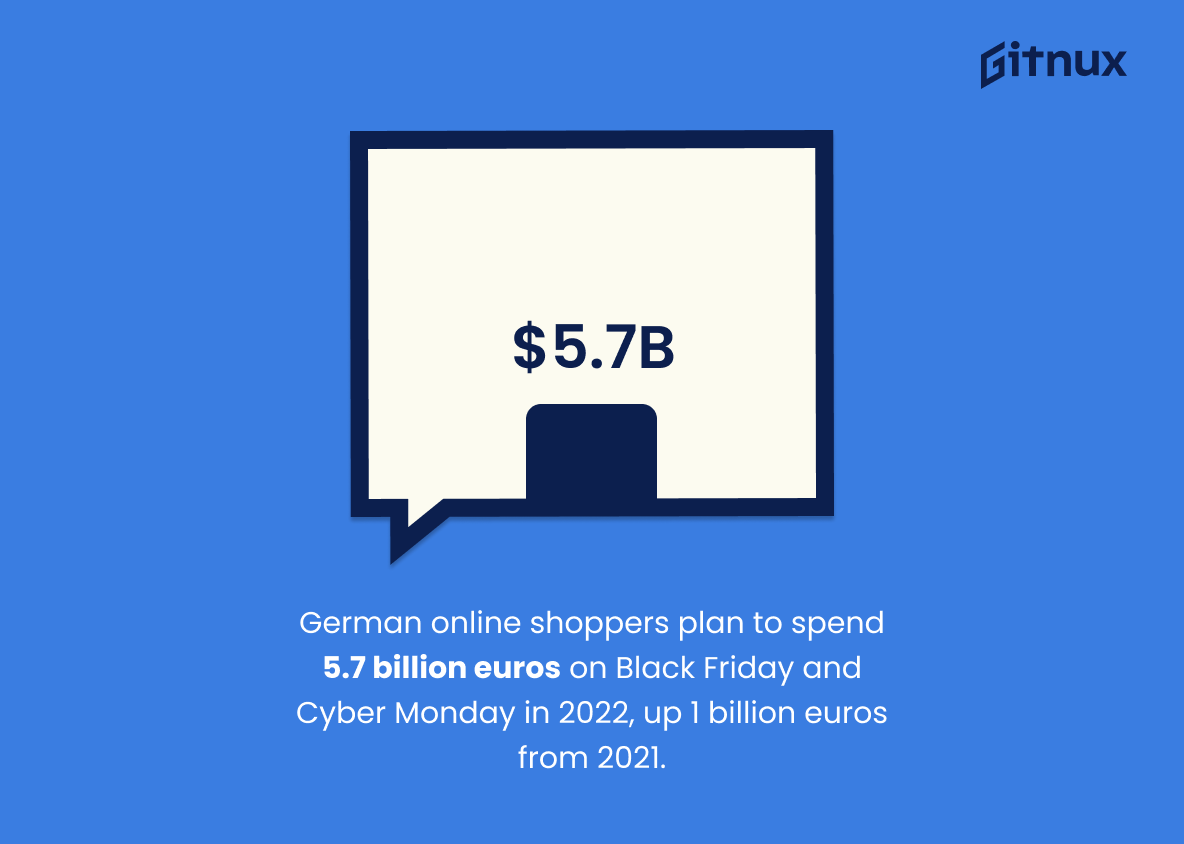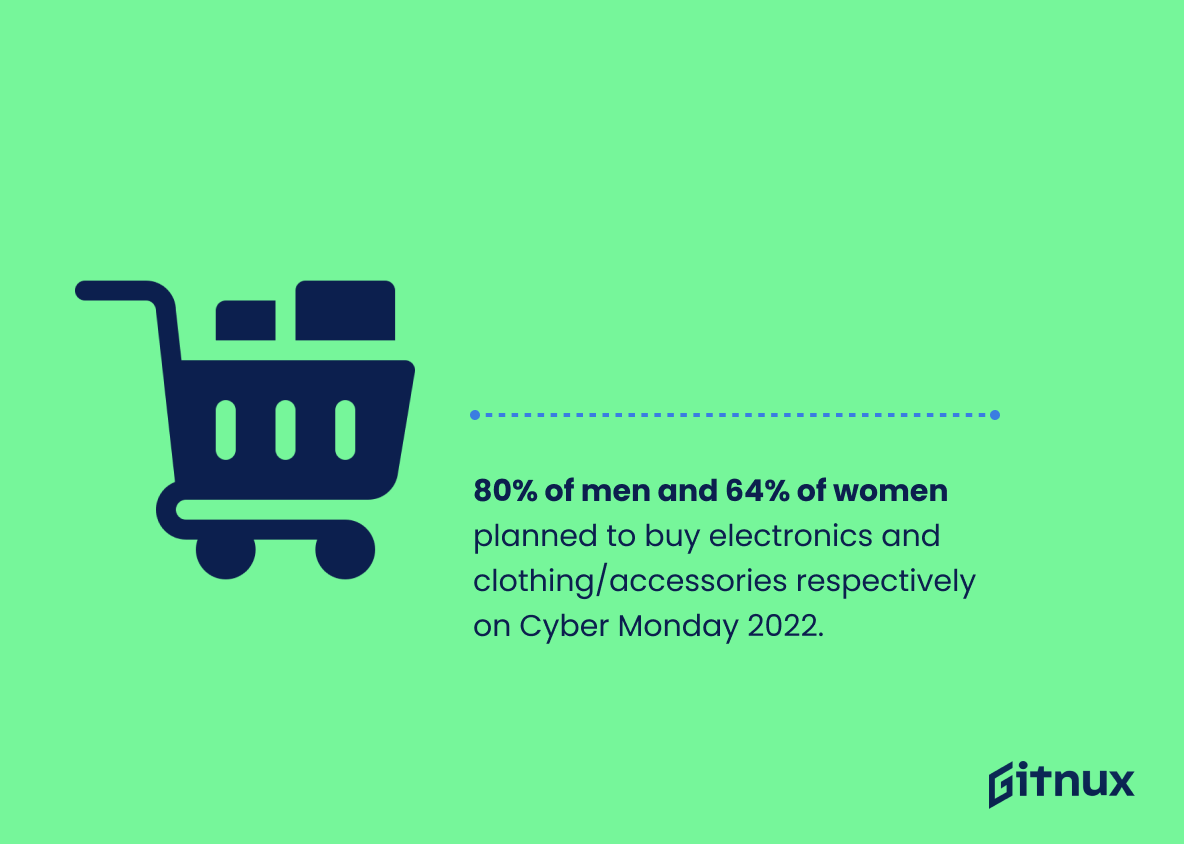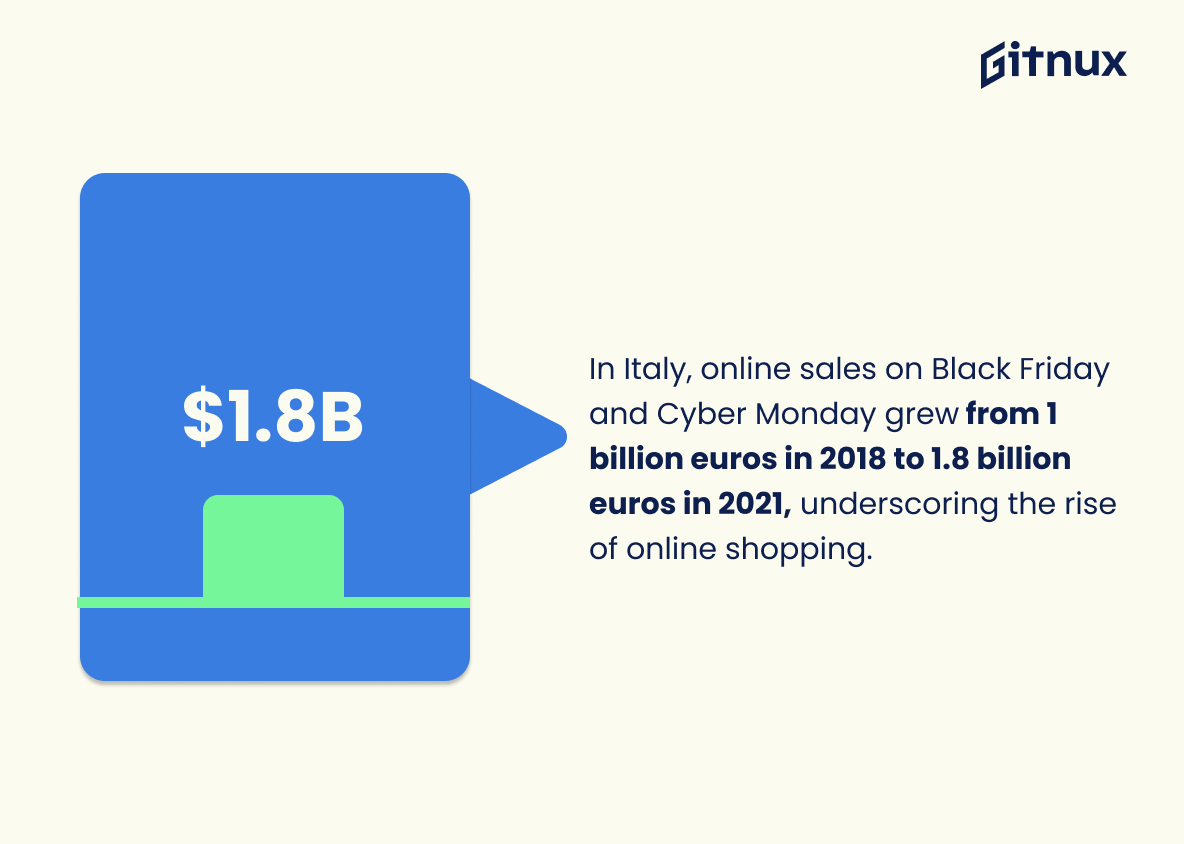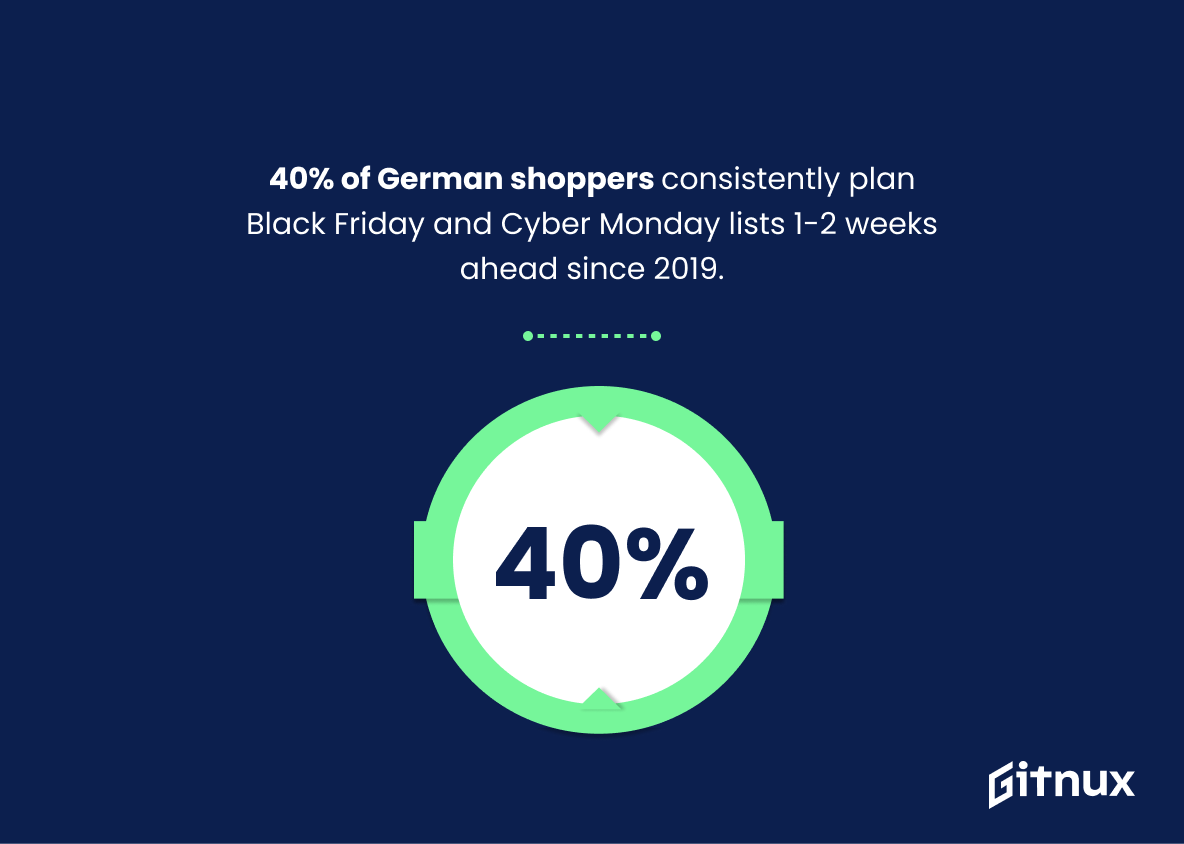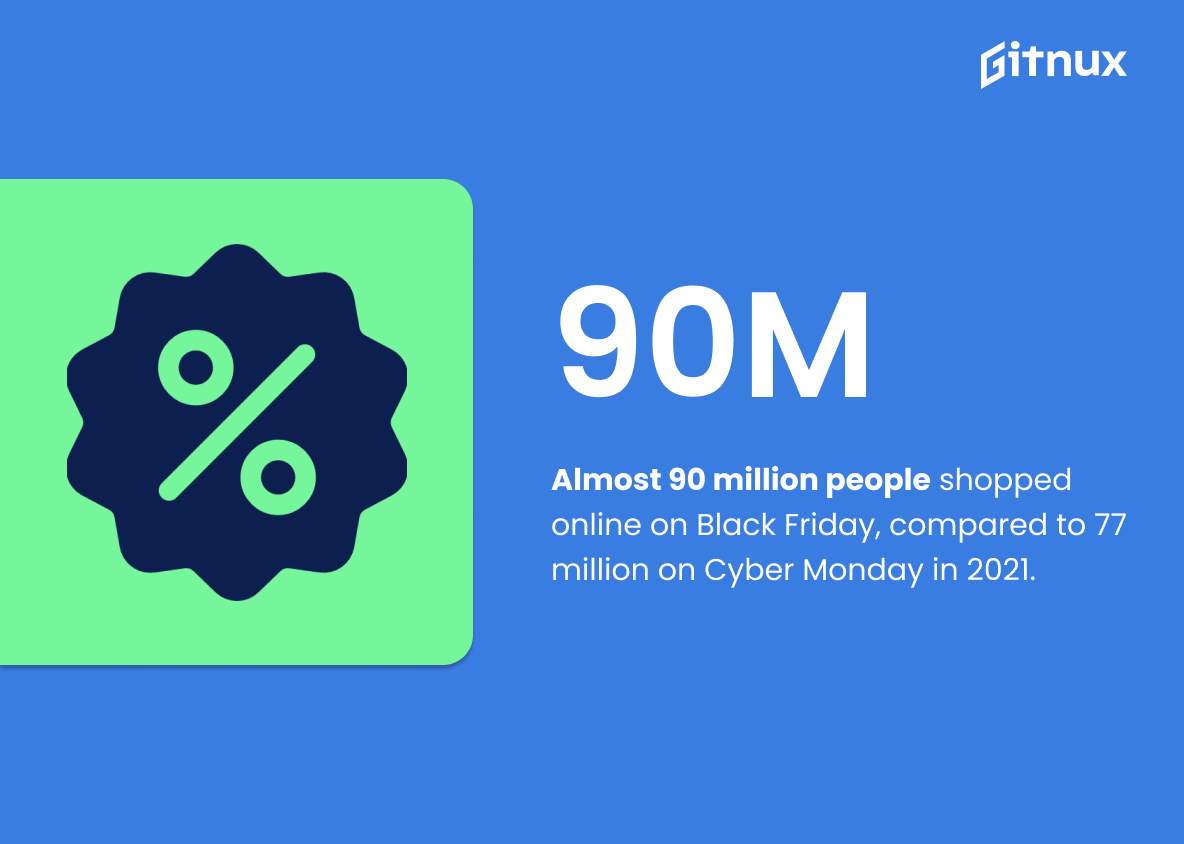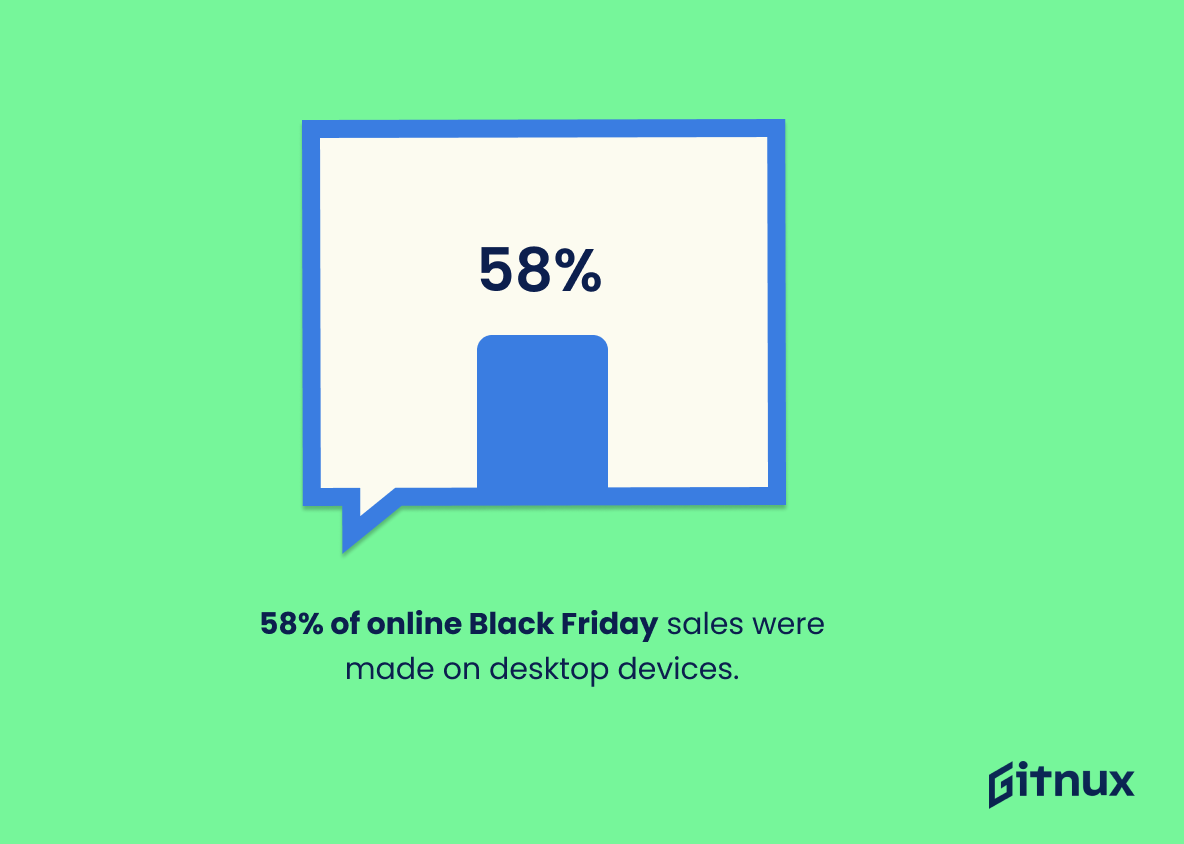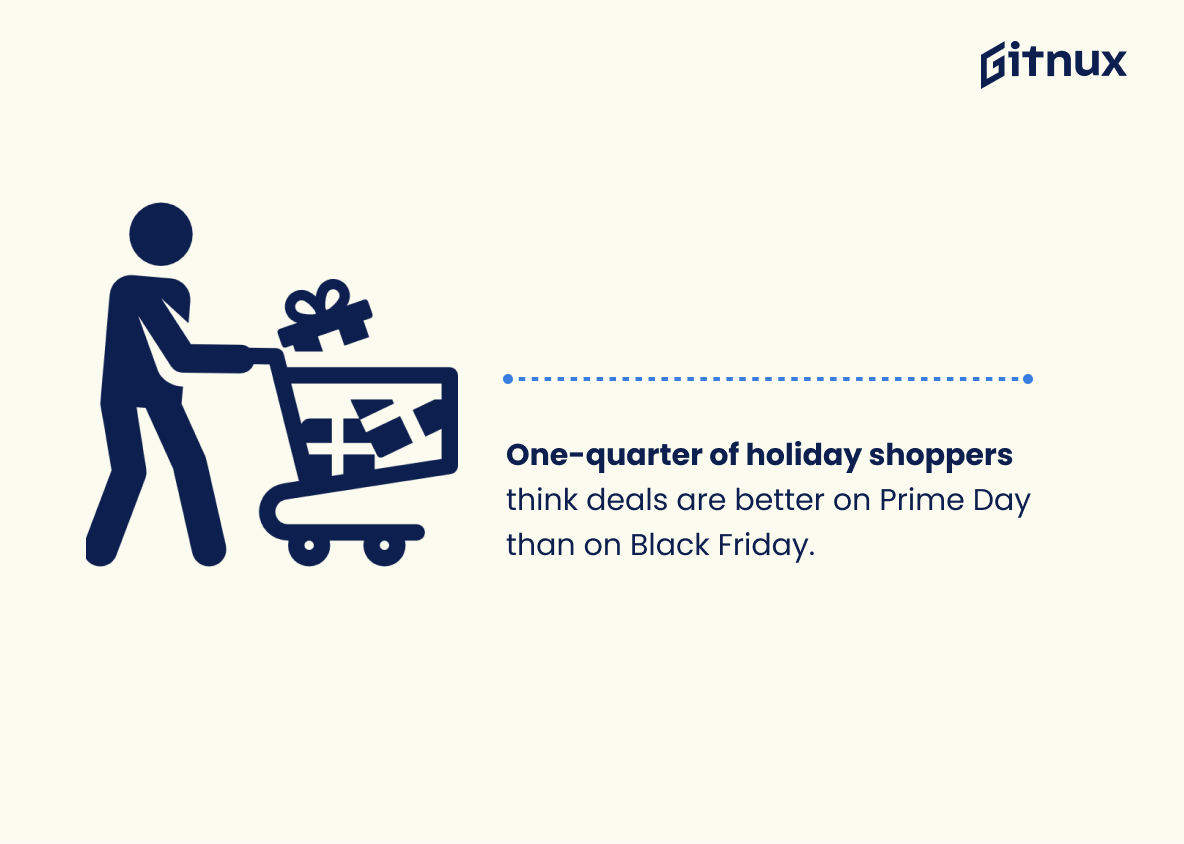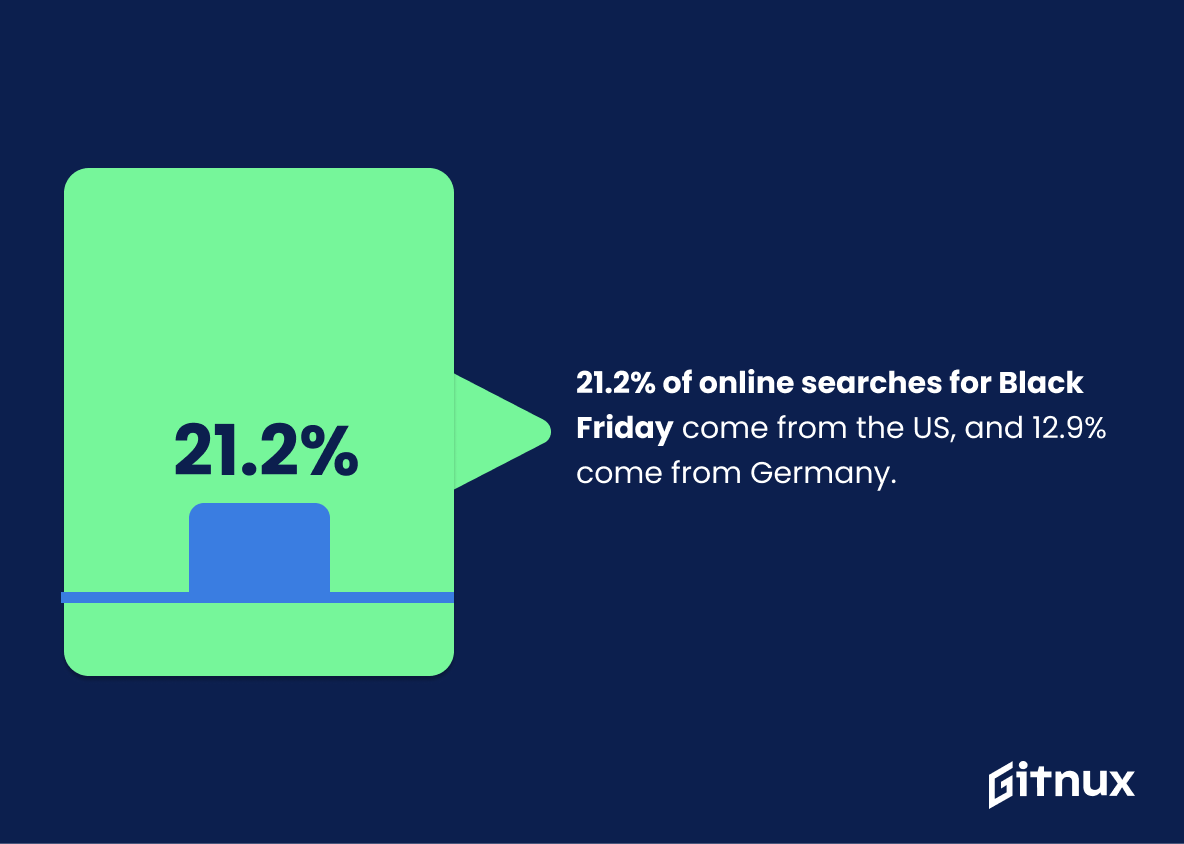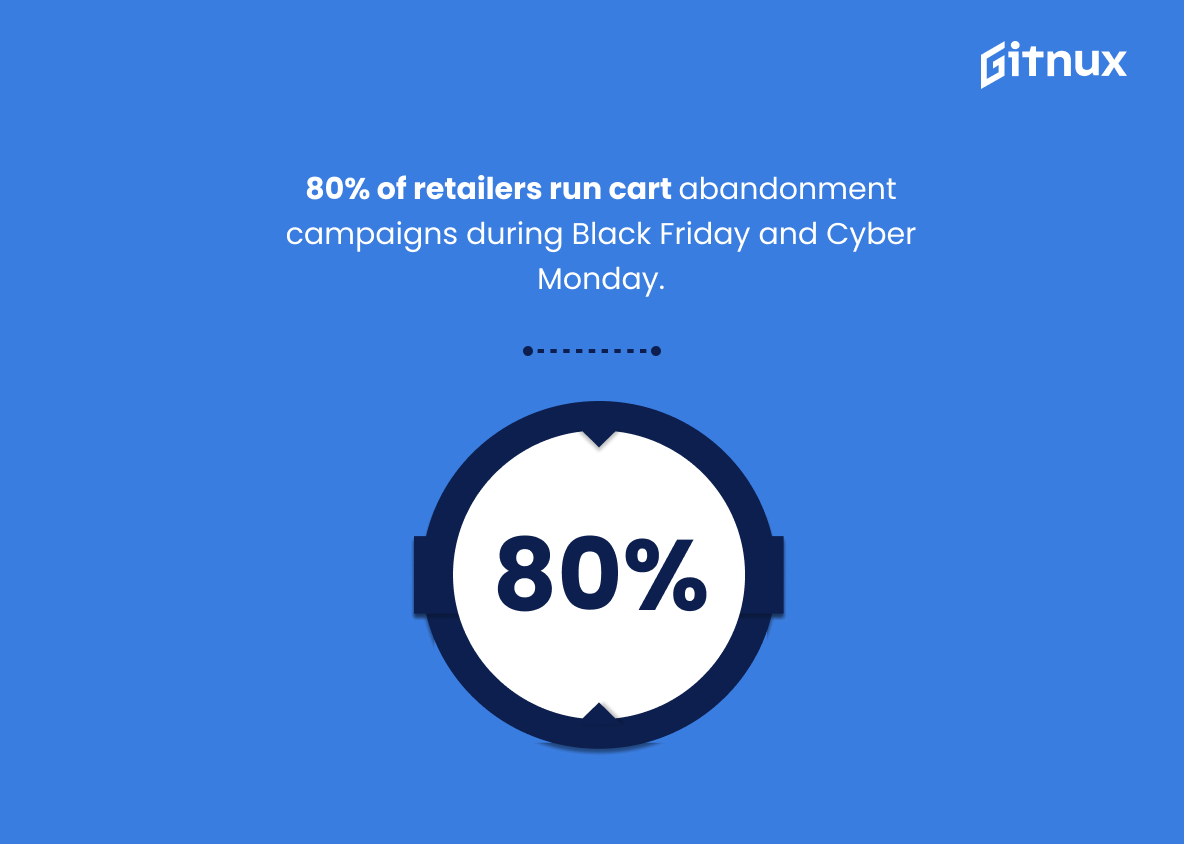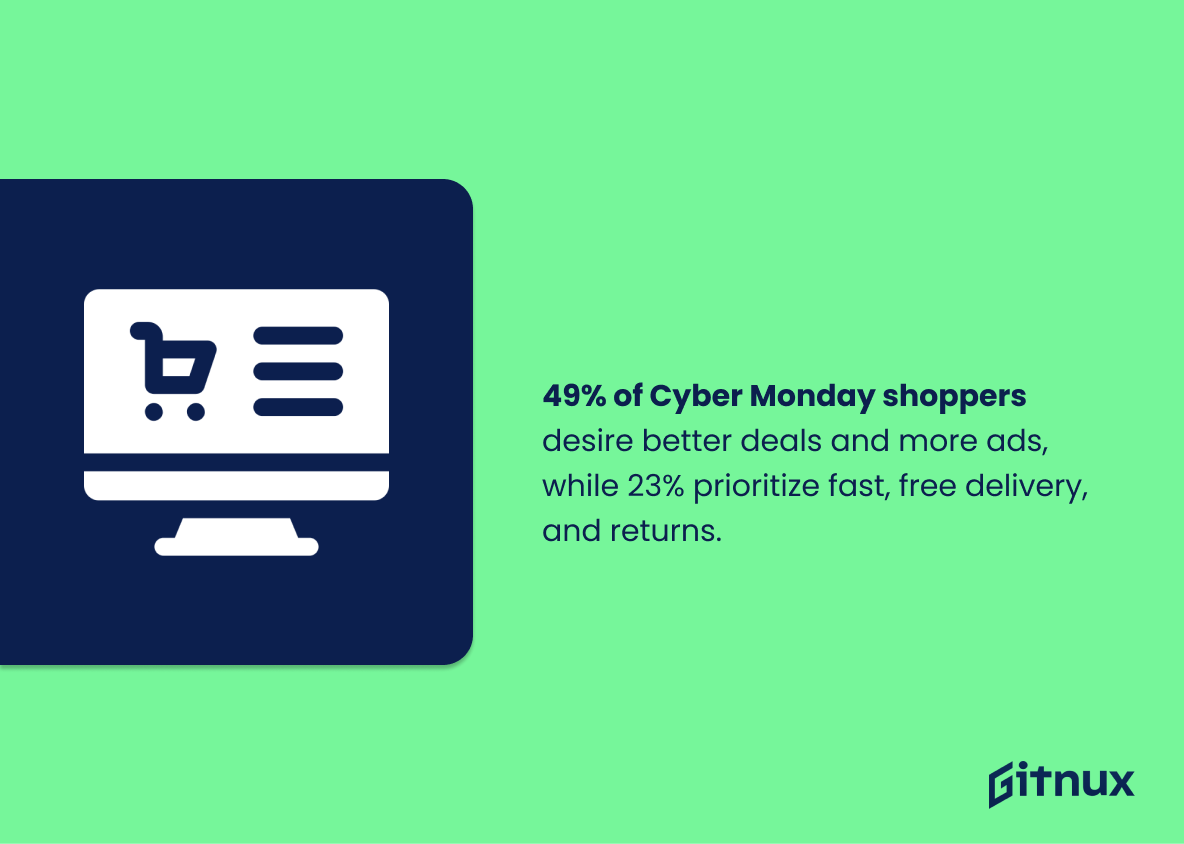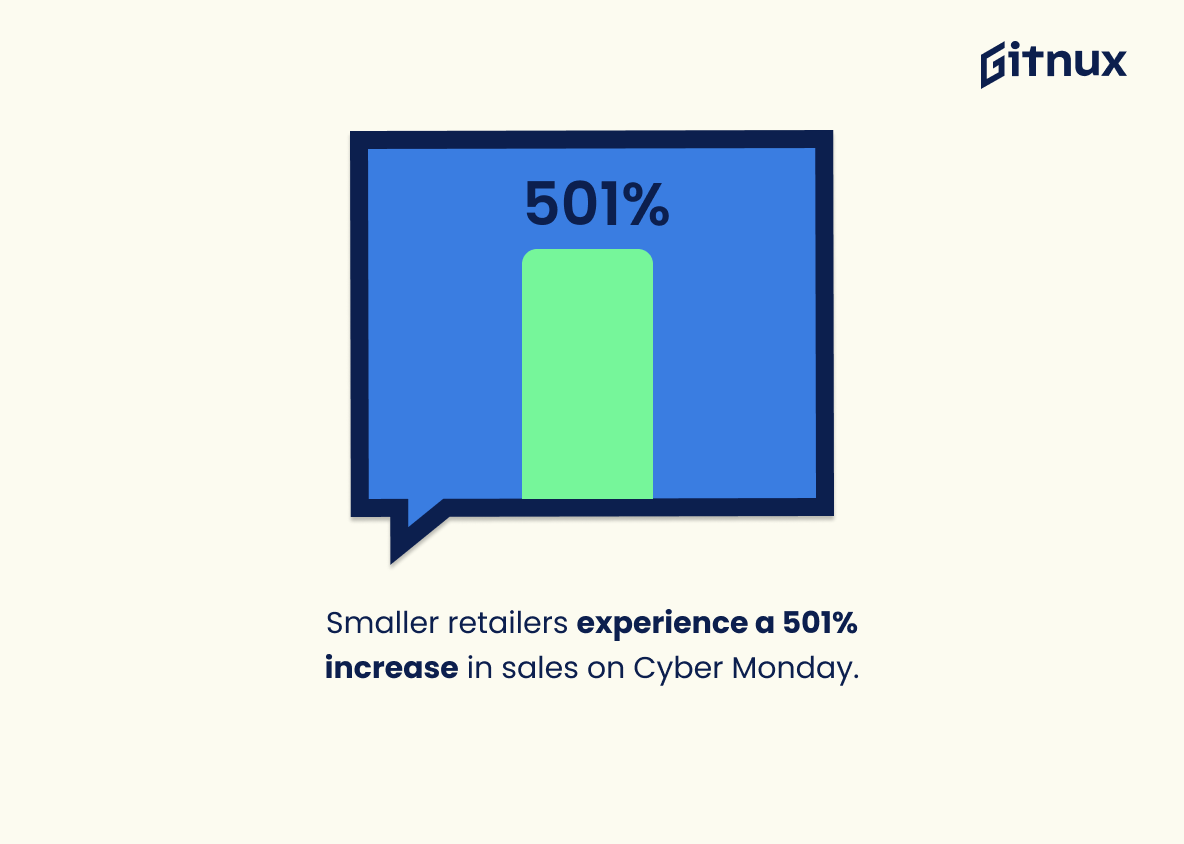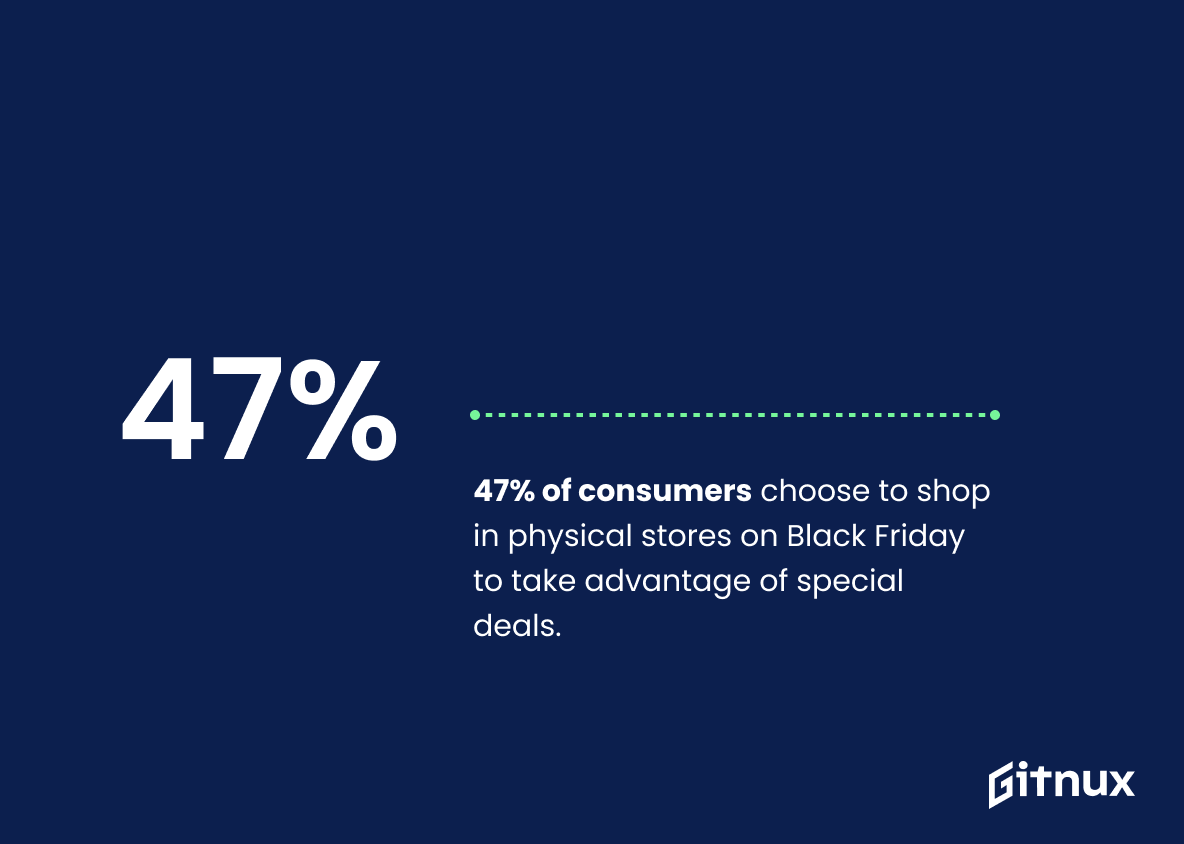As the holiday shopping season approaches, many shoppers are looking forward to the biggest shopping days of the year: Black Friday and Cyber Monday. But which one is the better deal?
To help you decide, we’ve compiled some of the latest Black Friday vs Cyber Monday statistics to give you an idea of which day is the better bargain. Read on to find out which day is the best for scoring the best deals this holiday season.
Black Friday Vs Cyber Monday: The Most Important Statistics
Almost 90 million people shopped online on Black Friday in 2021, compared to 77 million on Cyber Monday.
Online retail sales in Italy for Black Friday and Cyber Monday increased from 1 billion euros in 2018 to 1.8 billion euros in 2021.
Black Friday Vs Cyber Monday: Statistics Overview
In 2022, 33% of Canadian consumers planned to take advantage of Black Friday deals, while only 20% planned to shop for deals on Cyber Monday and Boxing Day.
This matters because it shows that Black Friday is still the most popular shopping day for Canadians, despite the growing popularity of Cyber Monday and Boxing Day. This indicates that Black Friday still has a strong presence in the Canadian market and should be considered when planning marketing and promotional strategies.
Online shoppers in Germany are expected to spend 5.7 billion euros during Black Friday and Cyber Monday sales in 2022, a billion euros more than in 2021.
This statistic is important because it shows the increasing popularity of Black Friday and Cyber Monday sales in Germany, which could have a significant impact on the retail industry. It also highlights the potential for businesses to capitalize on the increased spending during these sales, as well as the need to be prepared for the increased demand.
Most European consumers are aware of Black Friday, but Cyber Monday is not as well known. This matters because it shows that Black Friday is more popular than Cyber Monday in Europe, and companies should focus their marketing efforts on Black Friday rather than Cyber Monday. This could lead to higher sales for Black Friday, and more customers being aware of the event.
80% of men and 64% of women planned to buy electronics and clothing/accessories respectively on Cyber Monday 2022.
This statistic shows that while electronics are the most popular product category for Cyber Monday, clothing and accessories are the most popular product category for women. This indicates that Cyber Monday is more popular for online shopping than Black Friday, which is traditionally more focused on electronics.
Online retail sales in Italy for Black Friday and Cyber Monday increased from 1 billion euros in 2018 to 1.8 billion euros in 2021. Demonstrating the growing importance of online shopping during these days.
This is important as it highlights the increasing importance of online shopping during these days, which has been further accelerated by the pandemic.
40% of German consumers plan their Black Friday and Cyber Monday shopping list 1–2 weeks in advance, a trend that has remained consistent since 2019.
This statistic matters because it shows that German consumers are not planning their shopping for Black Friday and Cyber Monday in advance, which could lead to missed opportunities for retailers to capitalize on the sales events. This could be due to the fact that German consumers are not aware of the discounts available or are not interested in the sales events.
Almost 90 million people shopped online on Black Friday, compared to 77 million on Cyber Monday in 2021.
This statistic shows the increasing trend towards online shopping. It highlights the fact that more and more people are turning to the convenience of online shopping for their holiday purchases, rather than going to physical stores. This trend has significant implications for the retail industry, as it suggests that more businesses should focus their efforts on developing an online presence. It also suggests that retailers should focus on providing a better online shopping experience for customers, as this is likely to lead to increased sales.
Check out our latest Online Shopping Statistics
58% of online Black Friday sales were made on desktop devices.
It demonstrates the importance of desktop devices in online shopping. It also highlights the need for businesses to be aware of the various platforms used to access their online stores and ensure their websites are optimized for desktop devices. It may also inform decisions about advertising and promotional campaigns, as well as the need to ensure a seamless user experience across multiple devices.
One-quarter of holiday shoppers think deals are better on Prime Day than on Black Friday.
This highlights the growing appeal of Prime Day as a shopping event. As Prime Day becomes more popular with shoppers, it could shift the balance of power in the retail industry away from traditional Black Friday shopping. This could encourage retailers to offer more exclusive deals and discounts on Prime Day, which could in turn lead to more shoppers participating in the event. Understanding consumer sentiment towards Prime Day can help retailers better plan their promotional strategy and leverage the event to their advantage.
21.2% of online searches for Black Friday come from the US, and 12.9% come from Germany.
This statistic gives insight into the global reach of Black Friday. It shows that, while the US is the biggest contributor to online searches for Black Friday, other countries like Germany are also participating in the tradition. This is important for companies to consider when planning their Black Friday marketing campaigns, as it shows that Black Friday is no longer just an American tradition, but one that is celebrated internationally.
80% of retailers run cart abandonment campaigns during Black Friday and Cyber Monday.
It shows that retailers recognize the need to engage shoppers during the biggest shopping days of the year. Cart abandonment campaigns help retailers to recover lost sales and increase their overall revenue during the peak shopping season. These campaigns also help retailers to build relationships with their customers and capture valuable data that can be used to improve the shopping experience in the future.
49% of Cyber Monday shoppers want to see better deals and more ads from stores ahead of the sales. And 23% prioritize fast and free delivery and return options.
It shows that a majority of shoppers are looking for better deals and more ads from stores, which means that businesses should prioritize marketing and promotion in order to drive sales. Additionally, it indicates that fast and free delivery and return options are important to a significant portion of shoppers, highlighting the need for businesses to provide these services in order to remain competitive.
Smaller retailers experience a 501% increase in sales on Cyber Monday.
This fact shows the potential for growth for smaller retailers on Cyber Monday. With such a huge increase in sales, small businesses can capitalize on the online shopping trend and expand their customer base. Cyber Monday is an excellent opportunity for smaller businesses to increase their online presence and gain more visibility in the marketplace. This can lead to more sales and increased profits for smaller businesses.
47% of consumers choose to shop in physical stores on Black Friday to take advantage of special deals.
Despite some stores making deals available both in-store and online on Black Friday, there is still a high proportion of in-store-only offers. There is still a high demand for in-store shopping on Black Friday. It demonstrates that there is still value in offering special deals and discounts in physical stores, even though the majority of consumers are now shopping online. This statistic can be used by retailers to determine how to best allocate their resources and marketing efforts for this important shopping holiday.
Conclusion
Overall, Black Friday and Cyber Monday are both great opportunities for shoppers to get great deals on products. While Black Friday is still the most popular shopping day of the year, Cyber Monday has seen a steady increase in popularity over the past few years.
With the rise of online shopping, Cyber Monday is becoming an increasingly important shopping day for many consumers. With the right strategies, both Black Friday and Cyber Monday can be great opportunities for shoppers to save money and get the products they need.
References
Blogging Wizard: “The Latest Black Friday And Cyber Monday Statistics For 2023”, cited February 2023. (Source)
Statista: “Share of consumers planning to shop on Black Friday, Cyber Monday, and Boxing Day in Canada from 2020 to 2022”, cited February 2023. (Source)
Statista: “Spending by online shoppers on Black Friday and Cyber Monday in Germany from 2016 to 2021, with a forecast for 2022”, cited February 2023. (Source)
Statista: “Have you heard of Black Friday and Cyber Monday?”, cited February 2023. (Source)
Adobe: “The biggest consumer trends for Cyber Monday 2022”, cited February 2023. (Source)
Statista: “What type of purchases do you plan to make on Cyber Monday?”, cited February 2023. (Source)
Statista: “Online retail sales during Black Friday and Cyber Monday in Italy from 2018 to 2022”, cited February 2023. (Source)
Statista: “How long in advance do you usually plan your shopping list for Black Friday and/or Cyber Monday?”, cited February 2023. (Source)
